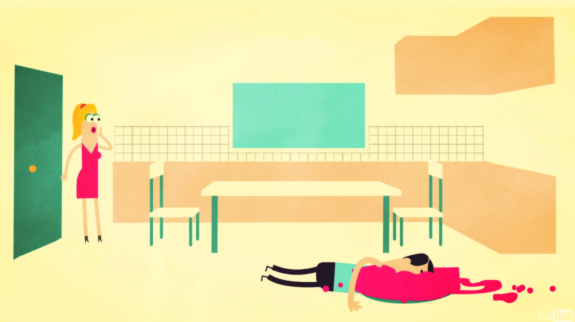Is it actually ironic? 3 TED-Ed Lessons on irony
By Jessica Ruby on September 18, 2014 in TED-Ed Lessons

How many times have you heard the phrase “That’s so ironic,” and wondered, “Wait … is it?” The term is used a lot in our cultural vocabulary and often incorrectly. In response to this confusion, TED-Ed Educator Christopher Warner wanted to set the record straight: What is irony? How is it used in everyday language or as a dramatic device? Is rain on your wedding day truly ironic? And why is irony so prevalent and useful? Focusing on three types of irony (situational, dramatic, verbal), Christopher Warner pieces together what is truly ironic.
Situational irony: The opposite of what you think
Let’s begin with the basics: Something is ironic if and only if it is the exact opposite of what you would expect.
In on a secret? That’s dramatic irony
You’re in a movie theater, watching the new horror flick. The audience knows something that the main character does not. The audience sees the character’s actions are not in his best interest. What’s that feeling — the one that makes you want to shout at the screen? This widely used storytelling device is dramatic irony.
At face value, the lines between verbal irony, sarcasm, and compliments can be blurry. After all, the phrase ‘That looks nice’ could be all three depending on the circumstances. Verbal irony is used most often and most casually.
Tags:
